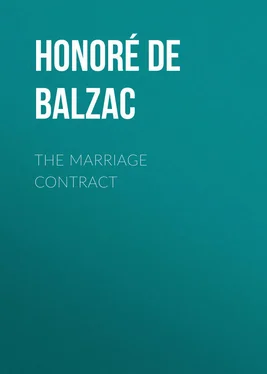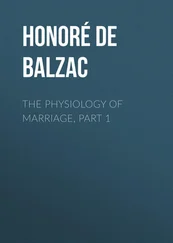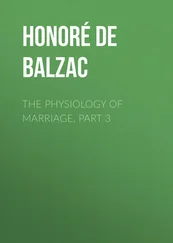Honoré Balzac - The Marriage Contract
Здесь есть возможность читать онлайн «Honoré Balzac - The Marriage Contract» — ознакомительный отрывок электронной книги совершенно бесплатно, а после прочтения отрывка купить полную версию. В некоторых случаях можно слушать аудио, скачать через торрент в формате fb2 и присутствует краткое содержание. Жанр: literature_19, foreign_antique, foreign_prose, на английском языке. Описание произведения, (предисловие) а так же отзывы посетителей доступны на портале библиотеки ЛибКат.
- Название:The Marriage Contract
- Автор:
- Жанр:
- Год:неизвестен
- ISBN:нет данных
- Рейтинг книги:5 / 5. Голосов: 1
-
Избранное:Добавить в избранное
- Отзывы:
-
Ваша оценка:
- 100
- 1
- 2
- 3
- 4
- 5
The Marriage Contract: краткое содержание, описание и аннотация
Предлагаем к чтению аннотацию, описание, краткое содержание или предисловие (зависит от того, что написал сам автор книги «The Marriage Contract»). Если вы не нашли необходимую информацию о книге — напишите в комментариях, мы постараемся отыскать её.
The Marriage Contract — читать онлайн ознакомительный отрывок
Ниже представлен текст книги, разбитый по страницам. Система сохранения места последней прочитанной страницы, позволяет с удобством читать онлайн бесплатно книгу «The Marriage Contract», без необходимости каждый раз заново искать на чём Вы остановились. Поставьте закладку, и сможете в любой момент перейти на страницу, на которой закончили чтение.
Интервал:
Закладка:
Honoré de Balzac
The Marriage Contract
CHAPTER I. PRO AND CON
Monsieur de Manerville, the father, was a worthy Norman gentleman, well known to the Marechael de Richelieu, who married him to one of the richest heiresses of Bordeaux in the days when the old duke reigned in Guienne as governor. The Norman then sold the estate he owned in Bessin, and became a Gascon, allured by the beauty of the chateau de Lanstrac, a delightful residence owned by his wife. During the last days of the reign of Louis XV., he bought the post of major of the Gate Guards, and lived till 1813, having by great good luck escaped the dangers of the Revolution in the following manner.
Toward the close of the year, 1790, he went to Martinque, where his wife had interests, leaving the management of his property in Gascogne to an honest man, a notary’s clerk, named Mathias, who was inclined to – or at any rate did – give into the new ideas. On his return the Comte de Manerville found his possessions intact and well-managed. This sound result was the fruit produced by grafting the Gascon on the Norman.
Madame de Manerville died in 1810. Having learned the importance of worldly goods through the dissipations of his youth, and, giving them, like many another old man, a higher place than they really hold in life, Monsieur de Manerville became increasingly economical, miserly, and sordid. Without reflecting that the avarice of parents prepares the way for the prodigalities of children, he allowed almost nothing to his son, although that son was an only child.
Paul de Manerville, coming home from the college of Vendome in 1810, lived under close paternal discipline for three years. The tyranny by which the old man of seventy oppressed his heir influenced, necessarily, a heart and a character which were not yet formed. Paul, the son, without lacking the physical courage which is vital in the air of Gascony, dared not struggle against his father, and consequently lost that faculty of resistance which begets moral courage. His thwarted feelings were driven to the depths of his heart, where they remained without expression; later, when he felt them to be out of harmony with the maxims of the world, he could only think rightly and act mistakenly. He was capable of fighting for a mere word or look, yet he trembled at the thought of dismissing a servant, – his timidity showing itself in those contests only which required a persistent will. Capable of doing great things to fly from persecution, he would never have prevented it by systematic opposition, nor have faced it with the steady employment of force of will. Timid in thought, bold in actions, he long preserved that inward simplicity which makes a man the dupe and the voluntary victim of things against which certain souls hesitate to revolt, preferring to endure them rather than complain. He was, in point of fact, imprisoned by his father’s old mansion, for he had not enough money to consort with young men; he envied their pleasures while unable to share them.
The old gentleman took him every evening, in an old carriage drawn by ill-harnessed old horses, attended by ill-dressed old servants, to royalist houses, where he met a society composed of the relics of the parliamentary nobility and the martial nobility. These two nobilities coalescing after the Revolution, had now transformed themselves into a landed aristocracy. Crushed by the vast and swelling fortunes of the maritime cities, this Faubourg Saint-Germain of Bordeaux responded by lofty disdain to the sumptuous displays of commerce, government administrations, and the military. Too young to understand social distinctions and the necessities underlying the apparent assumption which they create, Paul was bored to death among these ancients, unaware that the connections of his youth would eventually secure to him that aristocratic pre-eminence which Frenchmen will forever desire.
He found some slight compensations for the dulness of these evenings in certain manual exercises which always delight young men, and which his father enjoined upon him. The old gentleman considered that to know the art of fencing and the use of arms, to ride well on horseback, to play tennis, to acquire good manners, – in short, to possess all the frivolous accomplishments of the old nobility, – made a young man of the present day a finished gentleman. Accordingly, Paul took a fencing-lesson every morning, went to the riding-school, and practised in a pistol-gallery. The rest of his time was spent in reading novels, for his father would never have allowed the more abstruse studies now considered necessary to finish an education.
So monotonous a life would soon have killed the poor youth if the death of the old man had not delivered him from this tyranny at the moment when it was becoming intolerable. Paul found himself in possession of considerable capital, accumulated by his father’s avarice, together with landed estates in the best possible condition. But he now held Bordeaux in horror; neither did he like Lanstrac, where his father had taken him to spend the summers, employing his whole time from morning till night in hunting.
As soon as the estate was fairly settled, the young heir, eager for enjoyment, bought consols with his capital, left the management of the landed property to old Mathias, his father’s notary, and spent the next six years away from Bordeaux. At first he was attached to the French embassy at Naples; after that he was secretary of legation at Madrid, and then in London, – making in this way the tour of Europe.
After seeing the world and life, after losing several illusions, after dissipating all the loose capital which his father had amassed, there came a time when, in order to continue his way of life, Paul was forced to draw upon the territorial revenues which his notary was laying by. At this critical moment, seized by one of the so-called virtuous impulses, he determined to leave Paris, return to Bordeaux, regulate his affairs, lead the life of a country gentleman at Lanstrac, improve his property, marry, and become, in the end, a deputy.
Paul was a count; nobility was once more of matrimonial value; he could, and he ought to make a good marriage. While many women desire a title, many others like to marry a man to whom a knowledge of life is familiar. Now Paul had acquired, in exchange for the sum of seven hundred thousand francs squandered in six years, that possession, which cannot be bought and is practically of more value than gold and silver; a knowledge which exacts long study, probation, examinations, friends, enemies, acquaintances, certain manners, elegance of form and demeanor, a graceful and euphonious name, – a knowledge, moreover, which means many love-affairs, duels, bets lost on a race-course, disillusions, deceptions, annoyances, toils, and a vast variety of undigested pleasures. In short, he had become what is called elegant. But in spite of his mad extravagance he had never made himself a mere fashionable man. In the burlesque army of men of the world, the man of fashion holds the place of a marshal of France, the man of elegance is the equivalent of a lieutenant-general. Paul enjoyed his lesser reputation, of elegance, and knew well how to sustain it. His servants were well-dressed, his equipages were cited, his suppers had a certain vogue; in short, his bachelor establishment was counted among the seven or eight whose splendor equalled that of the finest houses in Paris.
But – he had not caused the wretchedness of any woman; he gambled without losing; his luck was not notorious; he was far too upright to deceive or mislead any one, no matter who, even a wanton; never did he leave his billets-doux lying about, and he possessed no coffer or desk for love-letters which his friends were at liberty to read while he tied his cravat or trimmed his beard. Moreover, not willing to dip into his Guienne property, he had not that bold extravagance which leads to great strokes and calls attention at any cost to the proceedings of a young man. Neither did he borrow money, but he had the folly to lend to friends, who then deserted him and spoke of him no more either for good or evil. He seemed to have regulated his dissipations methodically. The secret of his character lay in his father’s tyranny, which had made him, as it were, a social mongrel.
Читать дальшеИнтервал:
Закладка:
Похожие книги на «The Marriage Contract»
Представляем Вашему вниманию похожие книги на «The Marriage Contract» списком для выбора. Мы отобрали схожую по названию и смыслу литературу в надежде предоставить читателям больше вариантов отыскать новые, интересные, ещё непрочитанные произведения.
Обсуждение, отзывы о книге «The Marriage Contract» и просто собственные мнения читателей. Оставьте ваши комментарии, напишите, что Вы думаете о произведении, его смысле или главных героях. Укажите что конкретно понравилось, а что нет, и почему Вы так считаете.












